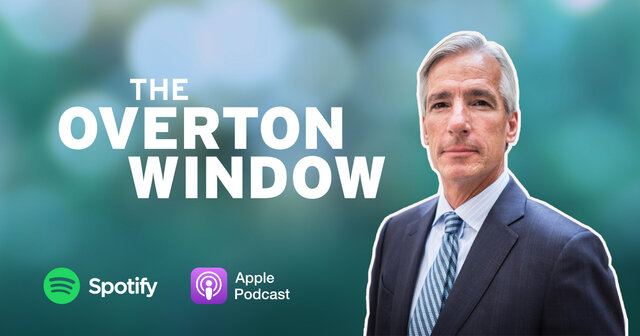
When we consider individuals capable of transforming political landscapes, we often think of elected officials. On the Overton Window podcast, John Tillman, CEO of the American Culture Project (ACP), emphasizes that real policy change begins with everyday American citizens.
The American Culture Project is an organization committed to attracting, educating and mobilizing independent voters around the ideas of freedom and opportunity. “There’s a famous phrase that says, ‘Politics is downstream of culture,’” Tillman says. “I think that that is true, but I don’t think there’s been enough time spent on what it means to engage upstream of culture.” This upstream engagement is critical for developing a politically informed and active electorate.
Tillman’s organization focuses on proactive strategies to engage voters before issues become politically charged. “The sooner we can engage people on issues that are emerging — long before it becomes political in the voters mind — the better chance we have of persuading them to a point of view that is liberty minded,” says Tillman. In Michigan and several other states, the American Culture Project is working on voter integrity issues to ensure that citizens feel confident in the fairness of elections.
“We’ve developed a methodology where we reach out to voters digitally through social media and other tools — texting, telephonically and otherwise,” Tillman says. This strategy involves creating what Tillman calls an “owned audience,” where potential voters engage with content and provide information that allows the American Culture Project to tailor individual communications on pressing issues.
Tillman illustrates this approach with a story from Illinois. A proposed mansion tax would have imposed additional fees on real estate transactions over a million dollars. While proponents framed the initiative as a tax on the wealthy, Tillman notes that in Chicago, “working class and middle-class people actually own homes that are worth a million dollars, and it affects them.”
The American Culture Project managed to shift public perception with their campaign.
“We’re the only ones spending material money on this,” Tillman explains. “We did a lot of work to understand how to communicate with voters on it, how to educate them on it, and how to get Democratic progressive voters to understand that the mansion tax was actually a tax on the middle class and working class.” What had seemed to be an assured victory for progressives turned into a win for taxpayers across the political spectrum.
Tillman emphasizes the necessity of meeting people where they are, which today means engaging online. “There’s an old saying in marketing that say, ‘You’ve got to meet people where they live,’ and people are living online now more than ever.”
Drawing from his marketing background, Tillman notes the importance of high-quality content in engaging voters. “If you create a continuous pipeline of content appealing to people on a variety of issues, you will find some that convert at a high rate and become viral,” he says. This approach is fundamental for think tanks, as “the power comes from the ability to take an issue and gather an audience, making that issue compelling to them.”
Tillman emphasizes the importance of constant engagement with citizens. “One of the things that we try to do is be engaged with voters and citizens all of the time, 24/7, 365.” This ongoing interaction allows the American Culture Project to test various issues and understand voter sentiment, which is crucial for effective outreach.
“You should always be listening to what the public is saying,” he says, because that helps discern trends and messages that resonate with different audiences.
The American Culture Project starts with everyday citizens. By understanding cultural nuances and continually reaching out to voters, the American Culture Project reshapes the political landscape one conversation at a time. As Tillman states, “The vast majority — when I say vast majority, I’m talking in the 60 to 70 to 80th percentiles, depending on the issue — still believes in America, believes in American exceptionalism, believes in the founding principles.”
Listen to the full exchange on the Overton Window podcast.
Permission to reprint this blog post in whole or in part is hereby granted, provided that the author (or authors) and the Mackinac Center for Public Policy are properly cited.
Get insightful commentary and the most reliable research on Michigan issues sent straight to your inbox.

The Mackinac Center for Public Policy is a nonprofit research and educational institute that advances the principles of free markets and limited government. Through our research and education programs, we challenge government overreach and advocate for a free-market approach to public policy that frees people to realize their potential and dreams.
Please consider contributing to our work to advance a freer and more prosperous state.

Donate | About | Blog | Pressroom | Publications | Careers | Site Map | Email Signup | Contact